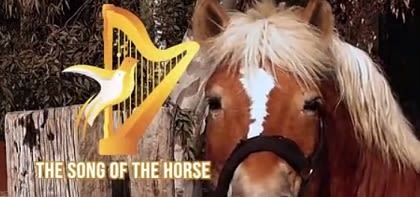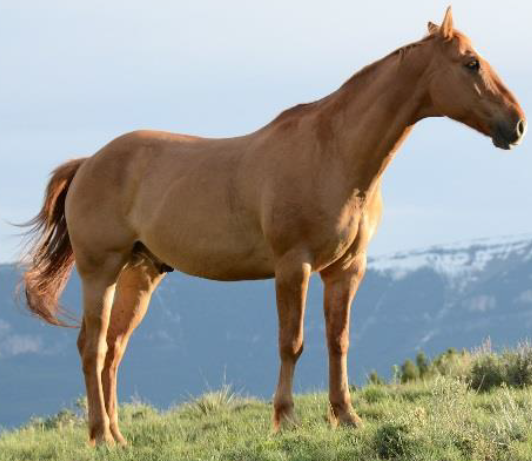
Perek Shira – The Song of the Horse
A mass of muscle and magnificence, the horse serves its master tirelessly, and sings to its Creator with every vigilant moment.

 The horse says: Behold, like the eyes of slaves that look to the hands of their master s, like the eyes of the maidservant that look to the hand of her mistress, so too are our eyes to Hashem our God, until He is gracious to us. (Psalms 123: 3)
The horse says: Behold, like the eyes of slaves that look to the hands of their master s, like the eyes of the maidservant that look to the hand of her mistress, so too are our eyes to Hashem our God, until He is gracious to us. (Psalms 123: 3)
Mighty, formidable, and untiring, horses are loyal servants to their masters. The Sages noted six characteristics of the horse:
1) It eats a lot
2) it excretes little
3) it loves licentiousness
4) it loves battle
5) it is haughty
6) it disdains sleep
A horse is unique in that it can sleep while standing. It sleeps throughout the day in brief naps totaling to approximately three hours daily.1 This is sufficient for it to retain its unequalled vitality. These traits stem from its mighty and fiery nature. Yet even this powerful creature can be led by a child.
Even after its superhuman labor, the domesticated horse can only look hopefully towards the hand of its master to feed him.
The horse’s greatness coupled with its subservience represent the attitude man ought to have to his Benefactor, Hashem. A righteous man does not assume Hashem owes him for his service, but rather requests his needs from his Master as a plea for mercy and lovingkindness.2
The horse sings to its Creator, not with its mass and brawn, but rather with its eyes, which incidentally are larger than the eyes of any other mammal on land.3 With these it sings: “Behold, like the eyes of slaves that look to the hands of their masters, like the eyes of the maidservant that look to the hand of her mistress, so too are our eyes to Hashem our God, until He is gracious to us.”
Living with Song
Our forefather “ran like horses” to do the will of Hashem4. They did so even though they went through many ordeals in which they appeared to have been mistreated by their Master. Nevertheless, the maintained their faith and their wholehearted allegiance to their faultless God. They made no demands on their Master they served tirelessly. They only prayed for compassion.
We are their progeny and heirs. This superhuman power is latent within us and we are capable of attaining the same unshakable faith. A person is therefore required to say “When will my deeds reach the caliber of the deeds of my forefathers?” If a person would humbly acknowledge his duties and his shortcomings, he would see only reason for gratitude.
Only with the mindset of the horse can one run at its pace. However, if one trudges and complains, and moans that he does not see his efforts being recognized and rewarded, he is slowing down greatly the production of his divine service.
If we would gallop like the horse, willingly, with a lust to serve, we would long ago have reached our destination and destiny.
1 Holland, Jennifer S. (July 2011). “40 Winks?”. National Geographic. 220 (1). [Wikipedia. See also their Terms of Use, which apply.]
2 Perek B’shir. See Endnotes for two additional commentaries which were not included here.
3 Sellnow, Les (2004). Eclipse Press. ISBN 978-1-58150-114-8. OCLC 56493380. [Wikipedia]
4 Gomarah Sanhedrin
***
Republished with permission by Rabbi Shmuel Kraines of the Song of Existence Project.











Tell us what you think!
Thank you for your comment!
It will be published after approval by the Editor.